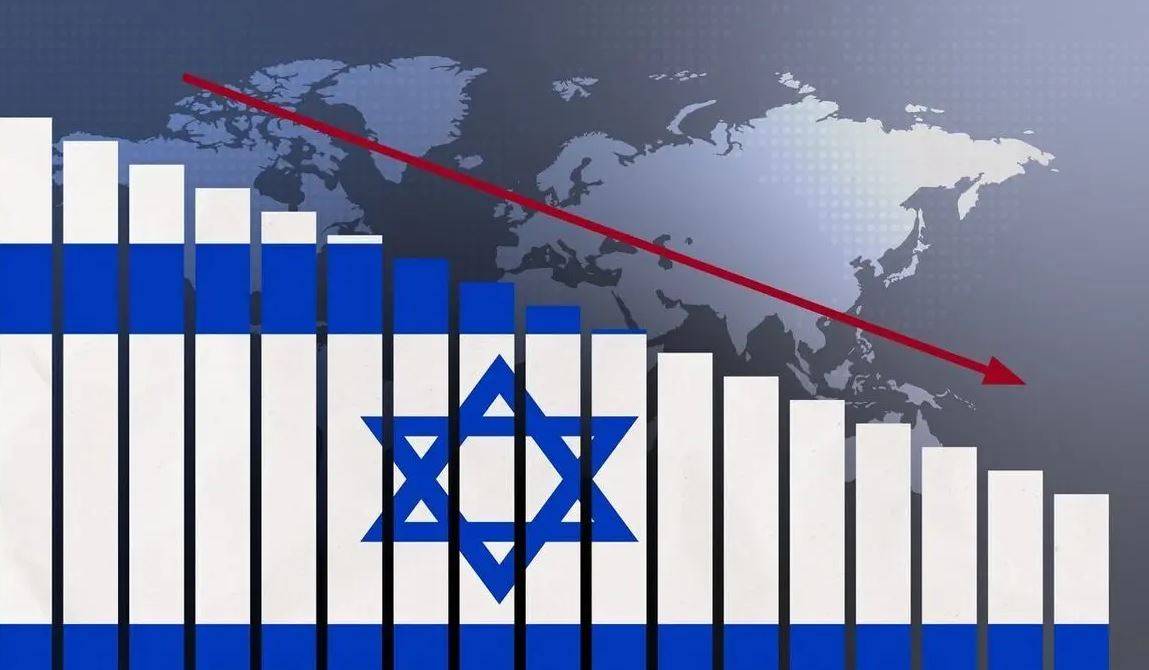2062 Views
From Promise to Poverty: Why Zionist Immigrants Are Fleeing the ‘Land of Prosperity’
Following the October 7 operation carried out by Palestinian fighters, many residents of the Zionist regime, fearing escalating tensions, decided to return to Western countries. Those who remained in the occupied territories have since been entangled in the regime’s numerous internal problems—issues that have long existed in these lands and are now only expanding in scope, with their fallout becoming ever more visible. The following will examine the economic condition of Zionist immigrants and its impact on the social fabric of the regime.
Widespread economic pressure—even on the working class
The regime’s media, in multiple reports, have spoken of the deteriorating economic situation of families living in the occupied territories. Many households in which both husband and wife are employed are nevertheless applying for financial assistance. This indicates that the crisis has spread from the poorer strata of society into the middle class. Netanyahu’s government, meanwhile, has focused exclusively on heightening military tensions across the region, showing little regard for the economic plight of those living in the occupied lands. This economic pressure could accelerate the reverse migration of Zionists.
Rising vulnerability of northern settlers
In the northern parts of occupied Palestine, insecurity and livelihood crises have made life exceedingly difficult for Zionist immigrants, creating fertile ground for reverse migration or abandonment of settlements. With ongoing wars and unstable borders between Lebanon and the Zionist regime, northern settlers find themselves in a state of uncertainty that strongly recalls the regime’s earliest days and its intense conflicts.
Severe erosion of the regime’s social capital
The growing dependence on government aid reflects the regime’s structural weakness in providing welfare and threatens to undermine public trust in governing institutions. This structural weakness, stemming from the regime’s years of warmongering, has deeply corroded its social capital. A recovery would require nothing short of a paradigm shift among Zionist leaders. Instead of strengthening the economy and supporting vulnerable classes, the regime has funneled its resources into militarism and the war industry, fueling a severe depletion of social capital.
It is worth recalling that one of the promises made to Zionist immigrants was to ensure them a prosperous economic life. Yet their lived reality has been one of grappling with poverty and economic hardship. This glaring contradiction between the promises made and the experiences endured has proven extremely costly for immigrants, and it threatens to weaken the ideological legitimacy of both the regime and the broader Zionist project.
Intensifying psychological and media pressures
The reflection of these problems in Hebrew and international media has projected a fragile image of Zionist society, reinforcing the resistance narrative of the regime’s dysfunction. Particularly over the past three years, international coverage of Zionist society has consistently reported escalating crises—issues that Western governments and the regime itself had previously sought to conceal before the October 7 operation. For regime residents, this has created unprecedented psychological and media pressure, over and above their economic struggles. This pressure has especially eroded the lower and middle classes, and if the regime fails to address it, the coming years will likely witness a dramatic increase in emigration from the occupied territories.
Conclusion
In sum, Jewish immigrants who, in past years, were lured to the occupied lands with colorful promises and the mirage of economic prosperity now find themselves in an unstable reality. The uncertainty of their daily existence could spark sweeping changes within the regime, for if they ultimately conclude that such promises have failed, many will return to their ancestral homelands in Europe and America. For the Zionist state, such a development would be tantamount to death, since one of its red lines is the decline in population within the occupied territories. Without people, the Zionists’ small occupied land will be left defenseless and exposed to its formidable regional rivals.
Translated by Ashraf Hemmati from the original Persian article written by Amirali Yeganeh
1. https://www.jpost.com/israel-news/article-847826
2. https://alestiklal.net/en/article/surge-in-reverse-migration-among-jews-from-israel
3. https://www.dw.com/en/israel-economy-iran-hamas-technology-industry/a-72960150

Comment
Post a comment for this article